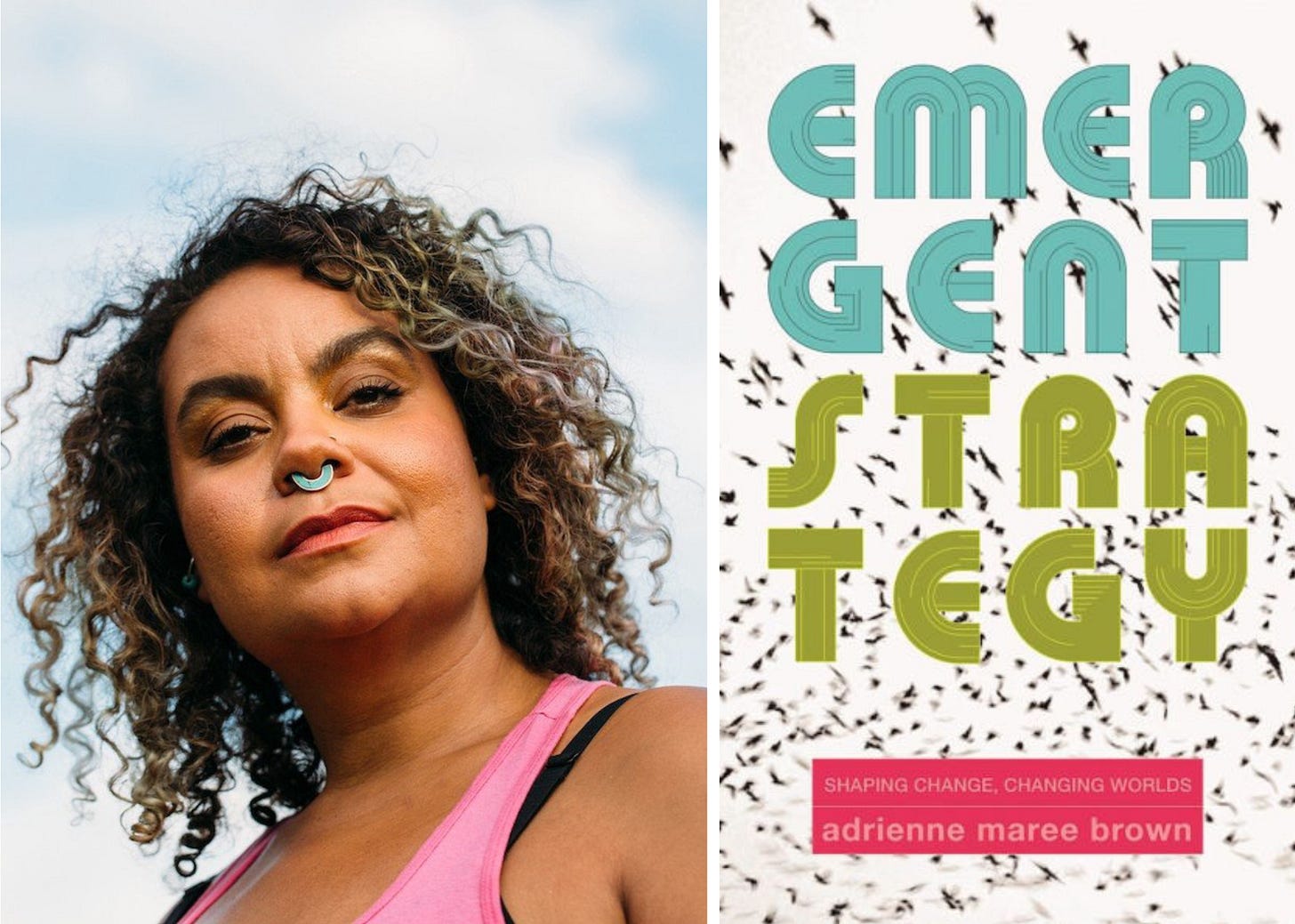It's Grading Season
Notes on crafting feedback, definitions of efficiency, and the April grading blues.
It’s April, which means it’s grading season. Across two courses I’ve graded 110,000 words this month already (that’s roughly 450 pages), with another 150,000+ words arriving at the end of this week. Final grades are due the first week of May.
Time is of the essence.
So this week on From the Ethics Desk I thought I’d give you a glimpse behind the curtain of grading ethics essays. Here are a few examples of what I assign students to read, what they write in response, what I think of their writing, and what feedback I write.
All of the examples below are anonymous and generic, of course. And I’m leaving numerical grades out altogether. No students were harmed in the making of this essay.
Part 1: “That’s a problem? Then I’ll just stop doing that.”
Example 1
What students read: “We have the tendency to make assumptions about everything. The problem with making assumptions is that we believe they are the truth.” - Don Miguel Ruiz, The Four Agreements
What students write: “When we make unsupported assumptions, they come at the expense of friendships and professional relationships. But on a deeper level, being controlled by our assumptions of other people shows that we are easily swayed. Ruiz is encouraging us to work to see beyond assumptions to the true value of the people I interact with.”
What I think: When an author that I have assigned in class criticizes a behavior, students are often eager to rid themselves of that behavior entirely. Overnight, if possible. The challenge, of course, is that if human beings were so easily rid of such behaviors, we wouldn’t need books to remind us of their power. In my comments I encourage students to slow down their thoughts, actions, and reflections to a more deliberate pace.
What I write: “Remember that our brains are wired to make assumptions. Consolidating and processing information quickly is one way our brains keep us safe. So if we simply tell ourselves, “Self, stop making assumptions,” that likely won’t be very effective, because our brains will put safety first. The steps to making fewer assumptions will have to be slower and more gradual. If you notice yourself making assumptions about a person or a place, try thinking of ways to remind your body (and therefore brain) that it is safe and secure. Then see what happens next.”
Example 2:
What students read: “Populations facing crisis are cast as in need of saving, and their saviors are encouraged to use their presumed superiority to make over these people and places, replacing old, dysfunctional ways of being with smarter, more profitable, more moral ways of being.” - Dean Spade, “Solidarity Not Charity: Mutual Aid for Mobilization and Survival”
What students write: “While I’m proud of my allyship with communities in the justice work I do – a partnership in which I sometimes end up speaking on their behalf – I know they are not waiting for me to save them. At the same time, as I reflect on my motivations for this work, I can’t help but think there is some ounce of saviorism there.”
What I think: As with the earlier example, in this assigned reading an author (Dean Spade) has criticized a behavior (“saviorism”), so the student is anxious to remove all (“some ounce”) of that behavior. Again, my goal is to invite the student into a slower, more enduring process of self-understanding and ethical reflection.
What I write: “It would be very Kantian to say that anything other than 100% purity of intention is a failure. (Similarly, Søren Kierkegaard, a Danish philosopher, once wrote a book titled Purity of Heart is to Will One Thing.) Other ethicists believe that purity of intention is impossible or, at least, highly improbable. In this case, the invitation would be less about purging yourself of every ounce of saviorism and more about the work of understanding yourself, your motivations, and your hopes. Remember, too, that Spade includes a slogan, “No masters, no flakes.” That approach discourages both perfectionism and apathy.”
Part 2: Effective at what? Effective toward which goals?
Example 1:
What students read: “Continuing to do what we are currently doing but doing it harder or smarter is not likely to produce very different outcomes. … Our actions will not become more effective until we shift the nature of the awareness and thinking behind the actions.” - Peter Senge, “The Dawn of System Leadership”
What students write: “I disagree with Senge, because my leadership has been effective and become more productive over time. What I am doing works quite well and I’m happy with how effective it is. The results speak for themselves.”
What I think: I wonder if this leadership is working quite as well as the student thinks it is, of course. More importantly, what I notice here is a common trend in undergraduate writing—an assumption that a word has one more-or-less obvious meaning. In this case, the word is effective. Either the leadership is effective or it isn’t. My aim is to invite the student to consider how many different things this word might mean, and for how many different purposes.
What I write: “There are different ways something can be “effective”—short term impact, long term impact, as a practice, as a theory, as a spark, as a slow burn. … This semester I have presented different accounts of how leadership can be “effective.” Some of the accounts we've examined would say "Yes, what you're describing is effective leadership," but other accounts would say, "No, that's not effective leadership." Which means at minimum we are going to need more information to make an assessment: Effective at what? Effective for whom? Effective toward which goals?”
Example 2:
What students read: “For the next period of history, we need to place an emphasis on impacted leadership (the leadership of communities directly impacted by economic and environmental injustice) and privileged support (the intentional support for impacted leadership from communities/people that can identify their privilege and want to see a rebalancing of power).” - adrienne maree brown, Emergent Strategy
What students write: “In valuing efficiency and impact, I do not take the time to slow down and start small in situations of leadership. Our capitalist world places great value on growth, and I have been habituated to calculating an organization’s success by its pace and scale. With these values in mind, I tend to forge ahead without taking the time to create space for open conversations with those most impacted by a problem and those working to improve it.”
What I think: Here, as above, a student is using particular definitions of efficiency and impact—definitions aligned with the productivity demands of late-stage capitalism. If we agree to this definition, that will mean that brown’s notion of impacted leadership is inefficient and unimpactful. And according to late-stage capitalism, it is. But there are other ways of thinking.
What I write: “I see what you mean here, but I wouldn’t put “efficiency and impact” on one side and “conversations with those most impacted” on the other side. A certain logic of productivity does that, yes, but depending on our goals, conversations with the most impacted people might be the most efficient and impactful things we could do. Not all forms of efficiency and impact are the same. The questions are: Efficient at what? Impactful for whom? What different forms of calculation might enable us to push back on the forms of calculation you’re describing here?”
Part 3: Lightning Round: Comments Edition
Now that I’ve written four examples, I see that this four-part structure of read/write/think/write makes for a pretty long post. So let’s speed along to the Lightning Round: Comments Edition.
What students write: “I tend to move too quickly, not taking the time to lay a strong foundation in the place or group that I am a part of.”
What I write: “This is particularly challenging when you are a college student, moving every few months from dorms to summer apartments and then into new dorms. There will be other periods of your life, one imagines, where this kind of community-building will be more achievable.
What students write: “This is the social contract: We sacrifice our rights to the government and in return that government protects us from threats and gives us other benefits of living in a community.”
What I write: “Who is this “we,” exactly? Citizens? Residents? Tax-payers? Some other group? We might identify, for instance, several subcategories of citizens, residents, and/or tax-payers who would not associate the government with protection from threat but instead say that the government is both protection and threat, depending on the circumstances.”
What students write: “A particularly powerful quote from the guest speaker was that people cannot flourish alone and they cannot flourish passively.”
What I write: “People often associate collaboration with passivity and control with agency. I like that our guest broke that mold.”
What students write: “In many of my new relationships since coming to college, I find myself pessimistic, constantly comparing my achievements to others’ achievements and feeling scared of being below average.”
What I write: “If you imagine that most of the students at Duke were in the top 5% of their high school graduating classes, that means that 95% of Duke students are experiencing a “drop” in academic status transitioning into college. (Literally 95% of the first-year class is no longer in the top 5% of the class.) Perhaps your fears of being “below average” are more common than you think.”
If you’ve made it this far, and you work in higher education, I highly recommend several wonderful resources for instructors on Substack. (For May or June, of course. Who has time to read in April?) Emily Pitts-Donohue’s fantastic Unmaking the Grade offers practical strategies for alternatives to traditional grading. Grading for Growth and Josh Eyler’s It Doesn’t Have to Be This Way are also tremendously useful. More broadly, John Warner’s Engaged Education is a gem.
As for me, I’m off to grade more essays.









Great post, Adam, and thanks for the shout-out!